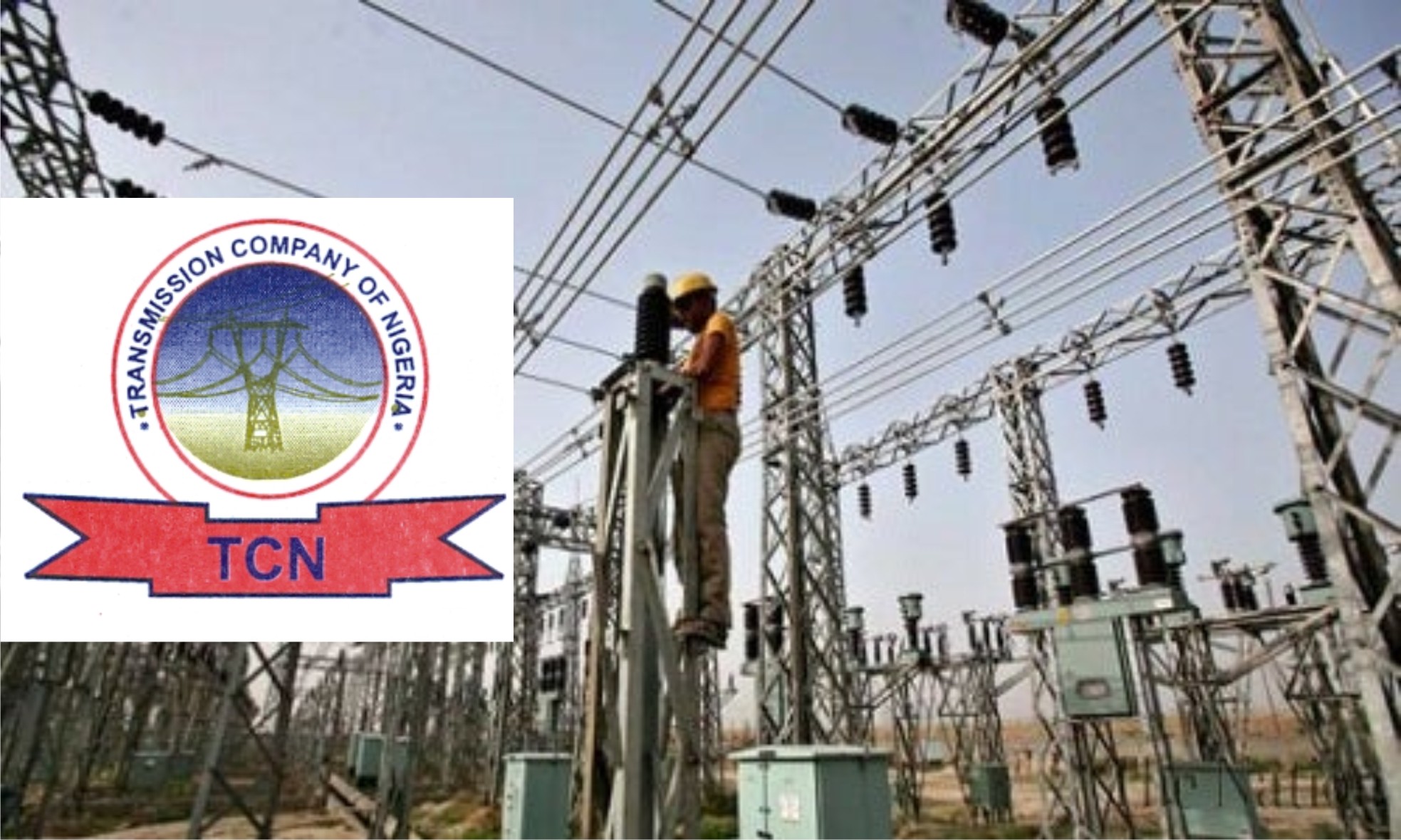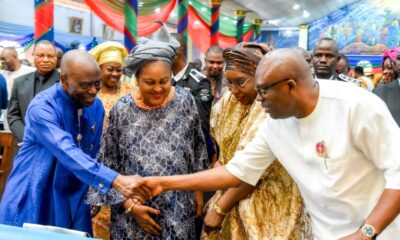Business
Okowa Charges ICAN To Propel Nation’s Economic Growth

Delta State Governor, Ifeanyi Okowa has charged the Institute of Chartered Accountants of Nigeria (ICAN) to explore new corridors of national planning to propel the nation’s economic growth.
Okowa gave the charge last Friday when the 56th President of ICAN, Dame Onome Adewuyi, led members of the executive on a courtesy visit to him at the Government House, Asaba.
He paid glowing tribute to accountants for their sterling contributions to the growth and development of the nation’s economy.
He, however, challenged them and other similar professionals to enunciate plans that could save the nation from its current economic challenges.
He underscored the need for the country to begin to plan for its ever increasing population. According to him, without proper planning, rising population will continue to retard the country’s economic development and national growth.
He regretted that successive administrations at the state and federal levels had virtually become fees and salary-paying establishments.
He said the development had left most states with no money for capital development.
“And it is capital development that truly runs the economy of states and the nation,’’ Okowa said.
“The budgets of the states and Federal Government are characterised by huge recurrent expenditure in terms of salary payment, overhead, repayment and servicing of debts.
“There has to be a mix between recurrent expenditure and capital expenditure.
“If we spend all our monies on recurrent expenditure without having a reasonable amount for capital expenditure, we will not be doing any good to the state and our nation.
“The impact is not only on the states. At the level of Federal Government, it’s quite a problem. “Today, we are almost living virtually on borrowing to be able to execute capital projects.
“It’s a problem all of us have to look into and it’s something ICAN can look into and offer your advice to both the federal government and states.
“The challenge is there but there must be a process to address it gradually because if we do not do so, we will be getting to a situation where we definitely embarrass ourselves as a nation.
“We hope that we don’t get to that point in the history of this nation,” the governor said.
He expressed concern that the country was “busy everyday planning our expenditure without planning the population of the nation.
“A nation that continues to plan for its expenditutre without planning its population is a nation that is not truly planning at all.
“It’s a big problem because we are in a nation today where our economy is dwindling.
“We are not expanding the economy the way we thought we should be able to do.
“Again, the economy is growing at a very low rate and the population of the nation is growing at a very high rate.
“There is no level of planning, no matter how intelligent that person is, that he can truly plan in such a space.
“I believe that it’s something that all of us who have the knowledge of planning must speak out to let this nation know that wherever we are at the moment, there is need to begin to look very closely inward.”
Earlier, Adewuyi commended the governor for the new paradigm he introduced into the leadership and governance of the state.
She described capacity-building as the primary mandate of ICAN.
She lauded the governor for his administration’s massive investment and transformation in the education sector.
“At ICAN, our mandate is to consistently act in public interest and we collaborate with stakeholders across all sectors, whether public or private, in the promotion of accountability, transparency and good governance.
“We believe that the national resources, if adequately managed and accounted for, are sufficient to guarantee decent lives and livelihood for the over 200 million Nigerians,” Adewuyi said.
She said that ICAN had concluded plans to establish a university in order to support stakeholders in the educational value-chain at bridging the gap in tertiary education in the country.
“We plan that the specialised university will commence with postgraduate courses in social and management science.
“It will open for admission by the next academic session in September,” she said.
Continue Reading
Business
CBN Unveils NTNIA, NRNOA Accounts For Diaspora Nigerians’ Investment

Central Bank of Nigeria (CBN) has introduced two accounts: Non-Resident Nigerian Investment Account (NRNIA) and Non-Resident Nigerian Ordinary Account (NRNOA), to manage funds (both in foreign and local currencies) from Nigerians abroad.
In a circular signed by its Acting Director, Trade amd Exchange Department, W. J. Kanya, the apex bank said with the NRNOA, Non-Resident Nigerians (NRNs) will be able to remit their foreign earnings to Nigeria and manage funds in both foreign and local currencies.
“The NRNOA enables Non-Resident Nigerians (NRNs) to remit their foreign earnings to Nigeria and manage funds in both foreign and local currencies, while the (NRNIA) enables Non-Resident Nigerians (NRNs) to invest in assets in Nigeria in either foreign currency (FCY) or local currency (Naira)”, the statement read.
It continued rhat “Account holders may maintain both a foreign currency (FCY) account and/or a local currency (Naira) account to facilitate transactions and participate in diverse investment opportunities”.
CBN also explained that NRNs can use their NRNIA to participate in Nigeria’s Diaspora Bond and other debt instruments issued locally specifically targeted at the Nigerian diaspora or available to the investing public.
The account is also to serve as a conduit for NRNs to manage their funds directly in a safe and secure environment, and reduce the reliance on third parties in meeting local commitments and obligations.
According to the bank, effective January 1st 2025, eligible NRNs shall have the opportunity to own any of the non- resident Nigerian accounts, subject to meeting KYC requirements which will be made available in FAQs to be released soon.
The CBN added that “This policy is without prejudice to Memorandum 17 of the CBN Foreign Exchange Manual (2018)”.
Business
Diesel Price Hike: Manufacturers Opt For Gas

Manufacturers in Nigeria are gradually opting for natural gas as a solution to increasing diesel and petrol prices which have negatively impacted on production expenses.
Recall that following the removal of fuel subsidies by President Bola Tinubu in his inaugural address on May 29, 2023, the prices of diesel and petrol have skyrocketed, further worsening the cost-of-living crisis for people.
Recognising the potential of its vast natural gas reserves, which is over 200 trillion cubic feet, has initiated a Compressed Natural Gas (CNG) programme aimed at reducing transportation costs by nearly 50 per cent.
The initiative encourages the conversion of vehicles to CNG and aims to introduce CNG buses across major cities.
Additionally, the recent commencement of diesel sales by Dangote Refinery has led to a notable decrease in diesel prices, dropping from approximately N1,700 to N1,350 per litre. This reduction is expected to alleviate some financial pressure on manufacturers’ reliance on diesel for operations.
Industry leaders emphasise that transitioning to natural gas not only addresses immediate cost concerns, but also aligns with global sustainability goals.
The Manufacturers Association of Nigeria (MAN) has, therefore, urged businesses to adopt sustainable energy practices, as energy costs constitute 30-40 per cent of production expenses.
Commenting on the development, Managing Director of Tiget Business International Limited, Zheng Wei, said some Nigerian manufacturers are leveraging improved gas supply around Lagos to boost production despite recurring grid collapses.
Wei, who oversees one of the country’s largest footwear manufacturers, described this shift as vital to sustaining operations amid Nigeria’s power crisis.
Wei noted that while manufacturers face challenges like inflation, currency instability, and regulatory hurdles, power remains the most critical issue.
According to the MAN, energy costs make up nearly 40 per cent of manufacturers’ expenses, with limited and unstable grid supply disrupting production and reducing output.
To address this, Tiget partnered Clarke Energy to install a 6.6 megawatt Jenbacher gas power plant, sourcing gas from a supplier along the Lagos-Ibadan Expressway.
The project included assessments, engineering designs, and maintenance services, enabling Tiget to transition to cleaner, more efficient, and cost-effective energy.
Wei said, “The gas plant is producing cleaner electricity and saving us significant operational costs compared to diesel. It has addressed efficiency issues, making our operations more sustainable”.
On hos part, the Managing Director of Clarke Energy for sub-Saharan Africa, Yiannnis Tsantilas, emphasised that adopting resilient and cost-effective energy solutions is key to sustainable productivity for manufacturers.
He commended Tiget’s leadership for enhancing Nigeria’s economy by improving local market access to quality footwear, reducing unemployment, and increasing investment.
Tiget, incorporated in Nigeria in 2020 and based in Sagamu, imports polyvinyl chloride as a key raw material for its footwear products.
The company plans to expand its operations through backward integration and establish offices across Nigeria and Africa.
Wei expressed confidence in Nigeria’s potential as a regional economic hub, citing its young, talented population and vibrant local market.
He, however, acknowledged the challenges of high fuel costs on logistics and competitiveness, and called for investments in refineries to provide feedstock for plastic industries and a stable gas supply to support manufacturers, arguing that these measures would drive industrial growth and enhance Nigeria’s economic stability.
With a population exceeding 220 million, Nigeria’s dynamic market presents significant opportunities.
Tiget, Wei said, aims to contribute by producing high-quality footwear that aligns with Nigeria’s rich cultural identity and evolving fashion industry.
Business
TCN Debunks Grid Collapse, Says Lines Tripped

The Transmission Company of Nigeria (TCN) has debunked last week’s declaration of grid collapse due to power disruption, saying it was due to the tripping of the Benin-Omotosho Line, not a national grid collapse.
Recall that the media widely reported last week that the national grid had experienced its first collapse in 2025.
TCN spokesperson, Ndidi Mbah, said the report was a misinformation.
“The TCN, hereby states that the nation’s grid did not experience any collapse today, contrary to the widely published misinformation in the media.
“Earlier today, at about 13:41 Hrs, the Osogbo–Ihovour line tripped, followed by the tripping of the Benin–Omotosho line. These consequently affected bulk supply to only the Lagos axis alone”, Mbah explained.
She also clarified that at about 13:00 pm, just before the tripping, total generation on the grid was 4,335.63MW, amd that after the trippings, generation was 2,573.23MW, showing clearly that the grid did not experience a collapse.
She noted that the transmission line tripping affected Egbin, Olorunsogo, Omotoso, Geregu, and Paras, but these have all been restored except for the Benin-Omotoso 330kV line whose restoration is ongoing.
“As TCN continues to work hard to put in place a robust transmission grid, in spite of prevailing challenges. It is imperative that we understand the negative impact of deliberately misinforming the public and the value of disseminating true and verifiable facts”, Mbah said.
-
Business5 hours ago
FAAN, UBA Partner In Lagos Airport Terminal Renovation
-
Sports2 hours ago
Sports Plays Driving Role in Dev – VFN President
-

 Featured4 hours ago
Featured4 hours agoRSG Set For Armed Forces Remembrance Day
-

 News2 hours ago
News2 hours agoReps To Prioritise 2025 Budget, Tax Reform Bills -Speaker
-
Politics7 hours ago
Senate Decries MDAs’ Remittances To Federation Account In 2024
-

 Politics4 hours ago
Politics4 hours agoSupport For Tinubu: It’s About Good Governance, Not Politics – Oborevwori
-
Business5 hours ago
RSG Targets 24hrs Power Supply Through IPP
-
Sports2 hours ago
Organisers Increase Prize Money For ECOWAS Marathon

